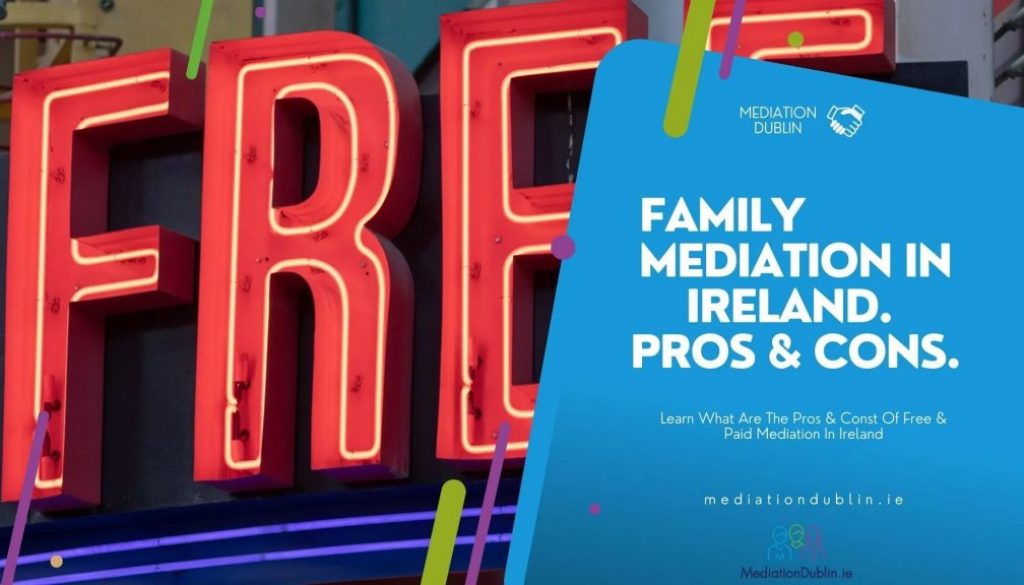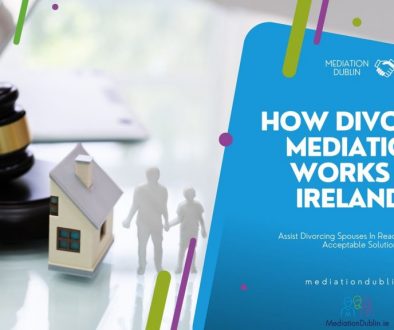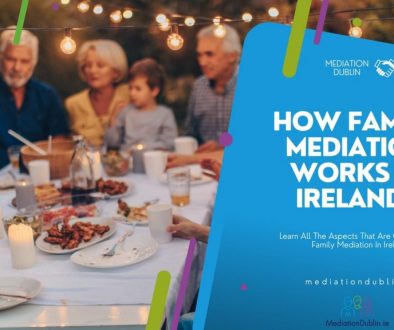How to Access Family Mediation in Ireland?

Mediation can be a powerful tool for resolving family disputes in a non-confrontational manner. In Ireland, family mediation is recognized as a practical and cost-effective alternative to going to court, especially when it comes to sensitive matters like separation, divorce, or child custody.
Thankfully, the Irish state provides services that offer free family mediation. Here’s how you can avail of them:
1. Understand What Family Mediation Is:
Before diving into how to access free mediation, it’s essential to understand its purpose. Family mediation is a confidential, voluntary process where a neutral third party – the mediator – assists family members in resolving their disputes without going to court.
2. The Family Mediation Service (FMS):
The primary body that provides free mediation services in Ireland is the “Family Mediation Service”, an arm of the Legal Aid Board. They have offices in many parts of the country and provide services that are entirely confidential and free of charge.
3. How to Approach FMS?
Visit in Person: The FMS has offices across Ireland. You can walk in and request a mediation appointment.
Online: Check the Legal Aid Board’s website for details about the FMS, its locations, and its services.
Phone: You can also call their helpline to schedule an appointment.
4. The Mediation Process:
Once you get an appointment:
Both parties will meet the mediator separately at first to discuss their concerns and issues.
Joint sessions will then be arranged. During these, the mediator helps the parties communicate and reach mutually agreeable decisions.
The process is entirely confidential, and nothing said in mediation can be used later in court, should the parties decide to go down that route.
5. Benefits of Choosing Free Mediation Over Court Proceedings:
Cost: While court proceedings can be expensive, using the FMS services in Ireland is free.
Time: Legal battles can drag on for months or even years. Mediation typically is faster.
Flexibility: Mediation provides a more relaxed and adaptable environment, letting both parties express their concerns without the strict formalities of a court.
Relationship Preservation: Especially important for families, mediation focuses on collaboration rather than confrontation, helping preserve relationships.
What If Mediation Doesn’t Work?
If parties can’t reach an agreement through mediation, they are still free to pursue their matters through the courts. The advantage is that they’ve had an opportunity to understand each other’s positions better, which can still aid in future negotiations.
Additional Free Resources:
Apart from the FMS, there are other organizations and charities that might offer free or low-cost mediation services. It’s a good idea to research local community centers or non-profit organizations specializing in family support.
Free vs. Paid Family Mediation in Ireland:
What’s the Difference?

In Ireland, family mediation has become a popular means of resolving disputes, especially given the non-confrontational and cooperative nature of the process.
While the Family Mediation Service (FMS) offers free mediation services, there are also private, paid mediation services available. Here’s a breakdown of the differences between the two, and why investing in a paid service might be a wise choice for many:
1. Availability and Wait Time:
Free Mediation (FMS): Being a state-provided service, FMS can sometimes have longer wait times due to a high volume of cases. This can mean delays in starting the mediation process.
Paid Mediation: Private mediators typically have more flexible schedules and can often start the mediation process quicker, ensuring that disputes are addressed promptly.
2. Choice of Mediator:
Free Mediation: You’re generally assigned a mediator from their available pool.
Paid Mediation: You have the freedom to choose your mediator. This can be crucial if you’re looking for someone with a specific expertise or if you want to work with a mediator recommended by a trusted source.
3. Duration & Session Length:
Free Mediation: The number of sessions and their lengths might be limited due to high demand and limited resources.
Paid Mediation: Private mediation often offers more extended, in-depth sessions, and there’s greater flexibility in the number of sessions you can have.
4. Customization:
Free Mediation: The process may be more standardized, with less room for customization based on individual needs.
Paid Mediation: The approach can be tailored to the specific needs and dynamics of the family, allowing for a more personalized experience.
5. Confidentiality:
While both free and paid mediation services offer confidentiality, there’s a perception among some that private mediators might provide a higher degree of privacy and discretion, especially when handling high-profile or particularly sensitive cases.
6. Expertise & Specialization:
Free Mediation: Mediators are trained and competent, but they may handle a broad spectrum of cases.
Paid Mediation: You can seek mediators with specific expertise or specialization, ensuring that they are well-versed in the intricacies of your particular situation or needs.
7. Aftercare & Support:
Free Mediation: Post-mediation support might be limited due to resource constraints.
Paid Mediation: Some private mediators offer extended aftercare services, follow-up sessions, and additional resources to ensure the continued success of the mediation outcomes.
Conclusion:
While the free mediation services provided by the FMS are invaluable and have helped countless families navigate disputes, there are undeniable benefits to opting for paid mediation.
The flexibility, customization, and depth of expertise offered by private mediators can be worth the investment, especially when considering the long-term wellbeing and harmony of the family.
Making the choice between free and paid largely depends on individual circumstances, but for those who can afford it, paid mediation in Ireland offers a comprehensive, tailored, and efficient approach to resolving family conflicts.


